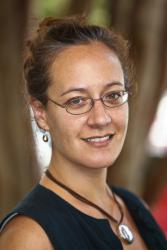Content from the Brookings Doha Center is now archived. In September 2021, after 14 years of impactful partnership, Brookings and the Brookings Doha Center announced that they were ending their affiliation. The Brookings Doha Center is now the Middle East Council on Global Affairs, a separate public policy institution based in Qatar.
Bessma Momani, nonresident fellow at the Brookings Doha Center and author of Arab Dawn, examines how Arab countries would benefit from more women joining the formal workforce and how this would promote gender equality throughout the region.
Also in this episode, David Wessel, senior fellow and director of the Hutchins Center on Fiscal and Monetary Policy, provides his regular economic update. This week: five big questions on economic policy.
Finally, Matt Fiedler, fellow with the Center for Health Policy in Economic Studies, discusses why he became a scholar and why he believes health care reform is currently the most pressing policy issue.
Show Notes:
Arab Dawn: Arab Youth and the Demographic Dividend They Will Bring
Entrepreneurship: An engine for job creation and inclusive growth in the Arab World
Equality and the economy: Why the Arab world should employ more women
Struggling economy? Gender equality can fix that
Mostly Harmless Econometrics: An Empiricist’s Companion
Ways to listen to this episode:
Thanks to audio producer Gaston Reboredo and producer Vanessa Sauter, and also thanks for additional support from Eric Abalahin, Jessica Pavone, Nawal Atallah, Kelly Russo, and Rebecca Viser.
Subscribe to Brookings podcasts here or on iTunes, send feedback email to [email protected], and follow us and tweet us at @policypodcasts on Twitter.
The Brookings Cafeteria is a part of the Brookings Podcast Network.





Commentary
PodcastThe Arab world should employ more women
March 31, 2017